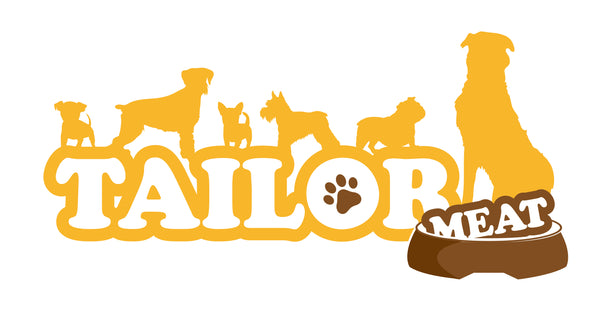In a column for the British newspaper "Daily Mail," British animal nutrition expert Jonathan Self stated that the digestive systems of dogs and gray wolves are actually identical. Therefore, dogs' stomachs should be able to absorb the nutrients from meat, bones, and organs, as well as small amounts of plants.
Are dogs carnivorous or omnivorous?
Dr. Bessent, an American veterinarian, points out that dogs' saliva lacks enzymes to digest starch and cellulose, their teeth are specifically structured for meat consumption, and their gastrointestinal tract is much shorter than that of omnivores. All of these factors prove that dogs are carnivorous animals.
Dog food and grain-free food mainly contain a large amount of carbohydrates (such as corn and beans), which not only disrupts dogs' digestive systems and nutrition but also raises the question: Can dogs really rely on this type of diet for healthy growth throughout their lives?
Let's reveal the truth about dogs' nature - carnivorous vs omnivorous link
If you want your dog to eat healthier, instead of just eating dry food, consider raw meat diet .
Reference link:
http://www.dailymail.co.uk/news/article-2546512/How-pet-food-killing-dog-feeding-parsnips-yoghurt.html
https://ivcjournal.com/digestive-enzymes/
TailorMeat tailormade raw meals for dogs and cats are freshly made in Hong Kong. Pet meals have passed food safety tests by SGS, an international testing agency. All meals are only made from human food grade ingredients and do not contain any artificial additives or preservatives. Each meal is individually vacuum-packaged in its serving size and delivered through a cold chain door-to-door delivery service.
We also provide one-stop pet health consultation service, including dedicated weight tracking and control, healthy growth, as well as behavioral counseling. Pet owners can sit back and enjoy a joyful time with their dogs and cats while we prepare safe and healthy meals at all stages of their life.

